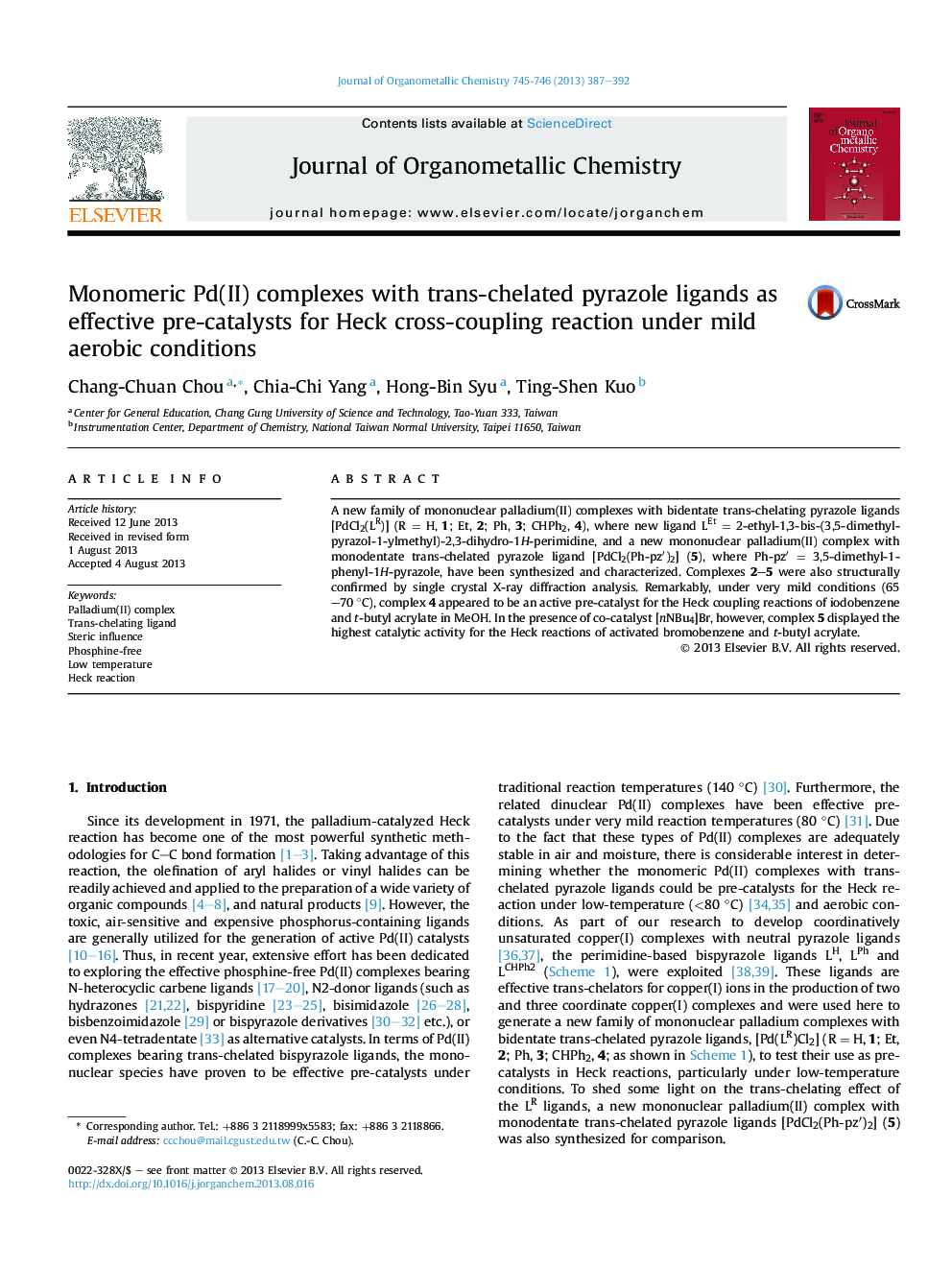| کد مقاله | کد نشریه | سال انتشار | مقاله انگلیسی | نسخه تمام متن |
|---|---|---|---|---|
| 1321554 | 1499894 | 2013 | 6 صفحه PDF | دانلود رایگان |

• Synthesis of trans-chelating bis-pyrazolyl ligands.
• Synthesis and characterization of palladium(II) complexes with trans-chelating bispyrazole ligand.
• Phosphine-free Heck reaction under mild aerobic conditions.
• Steric-influence of the ancillary ligand.
A new family of mononuclear palladium(II) complexes with bidentate trans-chelating pyrazole ligands [PdCl2(LR)] (R = H, 1; Et, 2; Ph, 3; CHPh2, 4), where new ligand LEt = 2-ethyl-1,3-bis-(3,5-dimethyl-pyrazol-1-ylmethyl)-2,3-dihydro-1H-perimidine, and a new mononuclear palladium(II) complex with monodentate trans-chelated pyrazole ligand [PdCl2(Ph-pz′)2] (5), where Ph-pz′ = 3,5-dimethyl-1-phenyl-1H-pyrazole, have been synthesized and characterized. Complexes 2–5 were also structurally confirmed by single crystal X-ray diffraction analysis. Remarkably, under very mild conditions (65–70 °C), complex 4 appeared to be an active pre-catalyst for the Heck coupling reactions of iodobenzene and t-butyl acrylate in MeOH. In the presence of co-catalyst [nNBu4]Br, however, complex 5 displayed the highest catalytic activity for the Heck reactions of activated bromobenzene and t-butyl acrylate.
Under mild aerobic conditions, a new bispyrazole Pd(II) complex [PdCl2(LCHPh2)] exhibited an effective catalytic activity for the Heck coupling reactions of iodobenzene and t-butyl acrylate in MeOH; meanwhile, a substantial steric influence of the 2-substituent in the linker of the trans-chelator LCHPh2 was revealed.Figure optionsDownload as PowerPoint slide
Journal: Journal of Organometallic Chemistry - Volumes 745–746, 15 November 2013, Pages 387–392